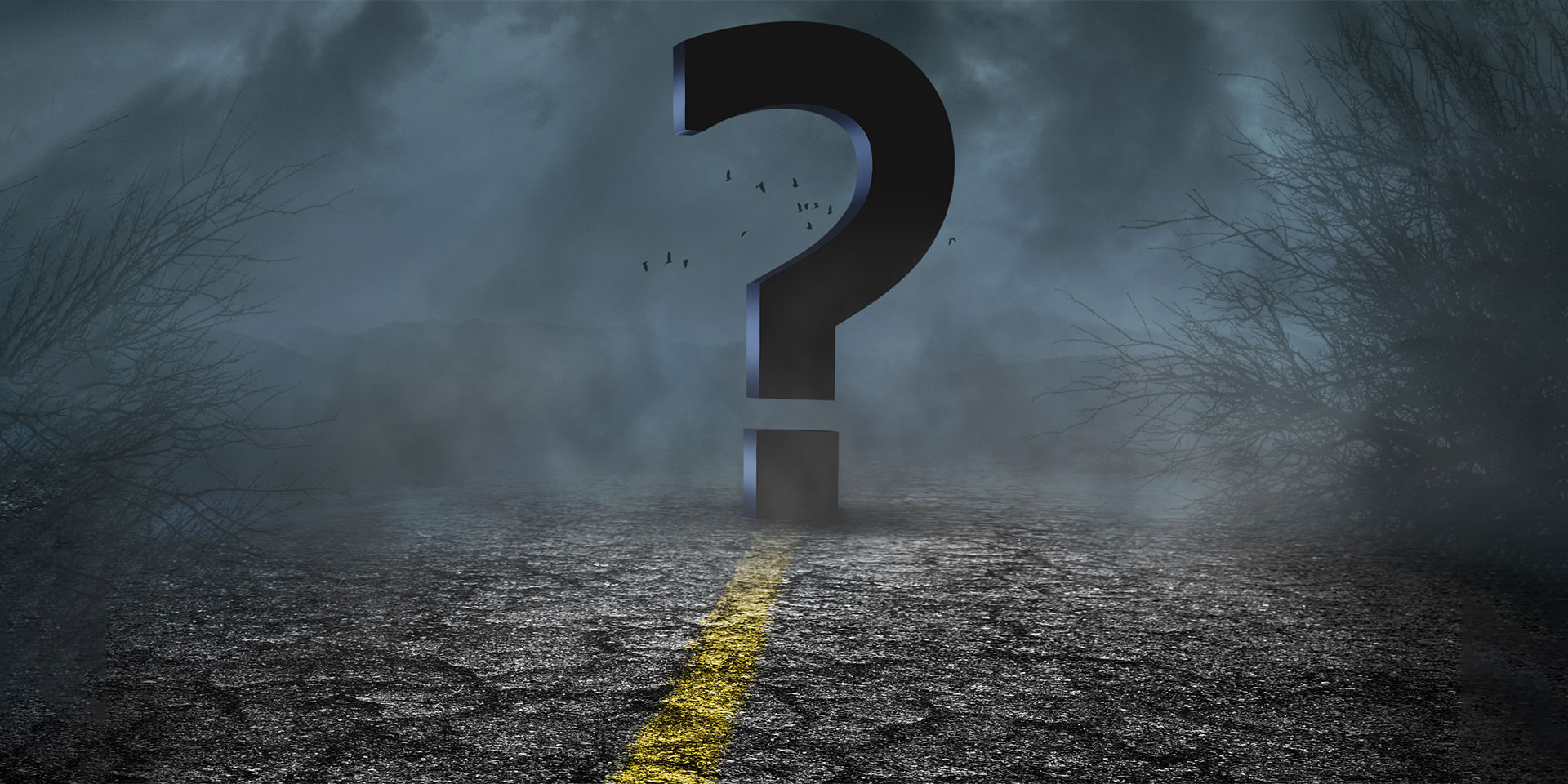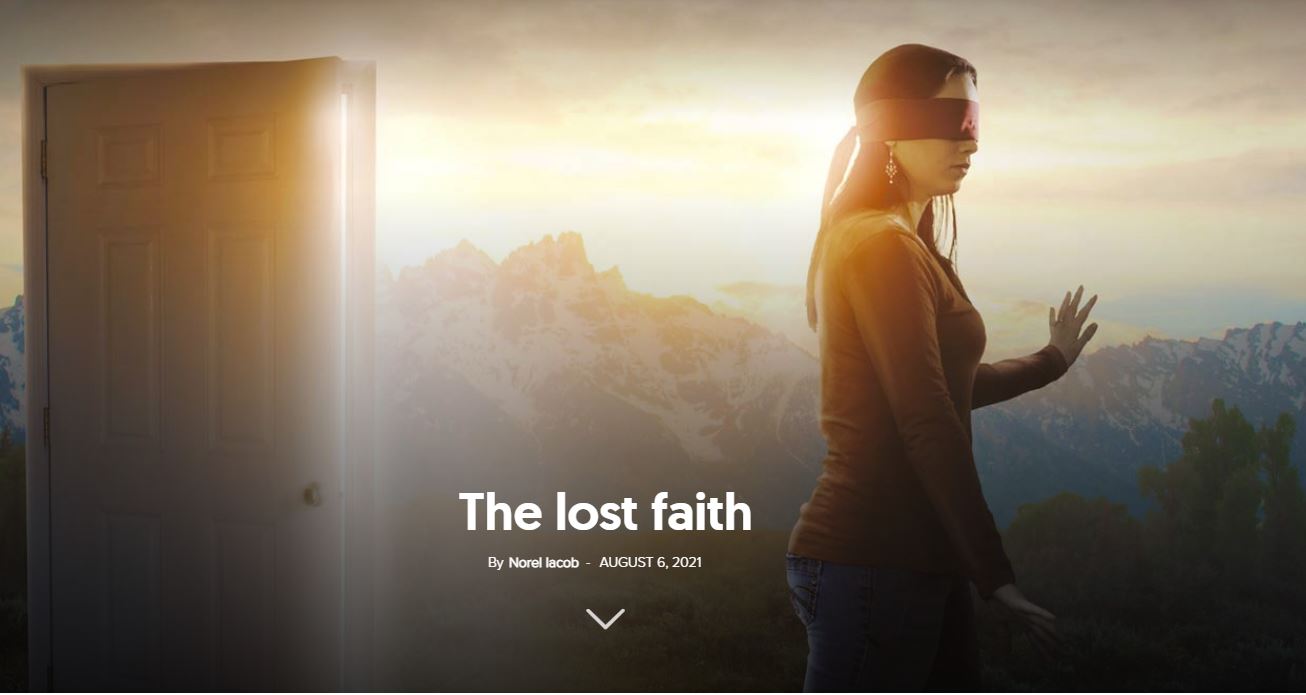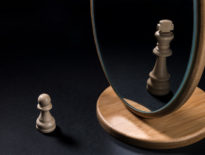Without ever seeking out doubt, I often welcomed it with interest and gratitude. I did not run away from it, nor did I treat it with indifference. I merely sought to tone it down.
Ever since I was a little child, I believed that doubt goes hand in hand with cleverness, as well as sanctification. As a child, I laughed at the sight of people who were filled with certainty; then I noticed how lacking doubt can inflate the ego and make one unpleasant.
Useful uncertainties
By doubting, I come to understand a state between belief and unbelief, between certainty and distrust. It significantly overlaps with the uncertainty which, despite stirring up one’s physical comfort and becoming hurtful when exacerbated, is a premise for positive development: “He has also set eternity in the human heart; yet no one can fathom what God has done from beginning to end” (Ecclesiastes 3:11-12). The thought of eternity is part of the whole process of knowing God and His creation. This is a journey beginning with me and moving towards the Truth. It’s a journey that requires a re-evaluation at every step, or even a correction of one’s beliefs.
Doubting and the religious man
Since I am not just religious, but also a theology graduate, I understand that doubt has the tendency to take shapes that conflict with the faith I affirm. How can faith survive in times of doubt? How can we overcome doubt?
I notice doubt can often be a sort of phobia for religious people that increases when they adopt a perfectionistic worldview. If righteousness and salvation is perceived to be a state of perfection where we can no longer err, and, if we imagine heaven as a place where not even children stumble when they learn how to walk, then doubt is a threat to our mental health and faith. However, in the secular perspective, both mistakes and doubts are simply fitting starting points for development.
The opportunity of doubt
According to Socrates’ conception, the only certainty we can have is the fact that we know nothing, and Descartes believed that when you doubt everything you cannot doubt that you are doubting[1]. Without adopting scepticism or methodical doubt, I regarded the doubts that occurred as I got to know the world around me as an opportunity for growth, either to strengthen my beliefs or to modify them.
The benefit of doubt
Firstly, I do not use doubt as an instrument for knowledge. I do not doubt for the sake of doubting or out of a wish to change personal beliefs. Doubt is beneficial when, after accumulating new information, my beliefs are being challenged. Regardless of the dilemma’s solution, it remains beneficial. As a result of research, my faith is strengthened. It helps me to rid myself of erroneous thinking, it teaches me to discern. When resolved, doubt strengthens authentic faith. The better the evidence for faith is, the stronger faith becomes.
The danger of doubt
Doubt can be a catalyst for the knowledge process, the perpetuum mobile component of knowledge, yet it need not turn into a continuous attitude of distrust. It’s risky to always gratuitously doubt everything. Doubt induces a state of uncertainty which, in its turn, generates emotional tension. Over time, this can affect our physical and mental health. Doubt goes on, without it being influenced by something external, turning us into sullen, undirected, suspicious, unpleasant, and unhappy people. We doubt everything and thus we do not consciously believe in anything.
Faith comes before doubt
To doubt one must first believe. Even if we cannot be certain about the origin of a doubt, it can certainly not exist without faith existing before it. Doubt may occur only after believing an idea. Doubt emerges based on new information, causing me to either have a stronger belief or to stop believing in the respective idea altogether. Doubt should always be an interlude between two realities—between faith and stronger faith, or between faith and unbelief.
Give yourself time when faced with doubt
I learned to live with doubts without rushing to draw rigid conclusions. The answers to life’s profound questions often come as a result of a lengthy search, an effort that may last several years. To give up the solid foundation you are sitting on just because you’ve encountered new data that points to another apparently better foundation, or that identifies yours as uncertain, is not a sign of intelligence but rather of presumption. To give up a belief, you need to have more reasonable arguments in favour of the doubt than those in favour of the belief you already have.
A bird in hand is worth two in the bush
I learned that, by giving up personal beliefs on account of missing elements in the answers to my questions, I do not build up another belief, but endanger my identity. A wise truth-seeker is one who gives up a belief only when the doubt is accompanied by a series of better arguments than those in favour of their current belief and, at the same time, by finding certain landmarks that replace whatever they choose to no longer believe in. By losing one’s faith, without discovering new, replacement truths, one no longer knows who one is, and what to believe in.
Giving up faith developed on the basis of the experience of a lifetime, whether long or short, puts you in a situation where you have to choose to believe something which only carries more unanswered questions. A good example is the conspiracy phenomenon. After receiving certain data, someone is capable of giving up their common-sense convictions and root for a cause they understand less, and is more poorly argued—just because they have reasons to doubt their previously held belief.
You may also like:
God is not afraid of our doubts
In theology, faith is fundamental to the knowledge upon which our worldview is built. It is impossible to know God without faith. The finite cannot meet the infinite. All that humans can do is to believe the Self-revelatory declarations of the Divine. The better we understand God’s messages, the stronger our faith is. The deeper the knowledge of God’s revelation is, the more our faith can help us to let go of preconceptions, superstitions, and presumptions. In this sense, the doubt that occurs in the knowledge process can become the premise for faith consolidation. Doubt can be the premise for either sin or righteousness, for stepping away from the truth or knowing the truth, for distrust or trust.
Indifference, an even greater danger
I learned that it is not doubt that is the opposite of faith, but disbelief. Indifference can lead a person to unbelief quicker than doubt. Doubt shows a person’s interest and the intellectual and emotional attachment towards the object of knowledge, and at the same time, towards the new reality that indicated a potentially different truth. Indifference towards a truth, on the other hand, breaks contact with the conviction or belief in that truth. The stakes of doubt are not its suppression into disappearance, but its resolution through a process of knowledge refinement.
Treating truth with indifference is more dangerous than doubting it. It leaves the impression that doubt has been completely quenched when, in reality, doubt has been left unresolved, feeding it and allowing it to grow. Allowing doubts to become latent can lead to their accumulation towards a maximum which often results in loss of faith. The spirit of the Bible urges us neither to stir up doubt until it comes, nor to be afraid of it. The doubts we encounter on our faith journey never outmatch our ability to solve them, and each of them leads to the wellbeing of those who believe and love God.
Stefanita Poenariu believes that as long as the tendency to err exists, doubt can be a vector of change from error to truth, while at the same time being able to create a transition from truth towards untruth.




















